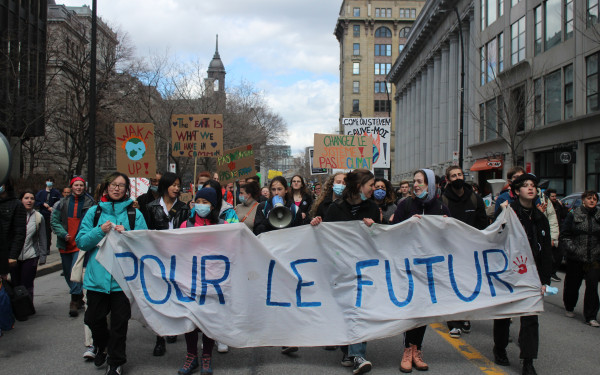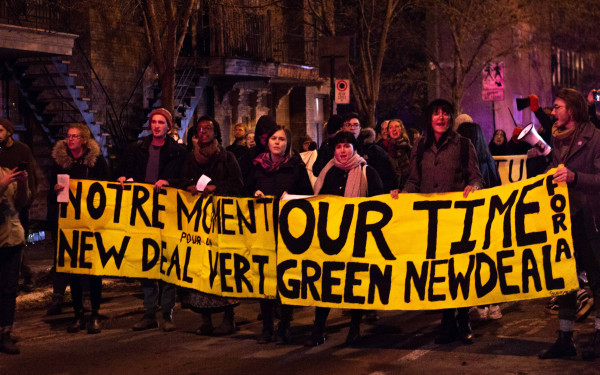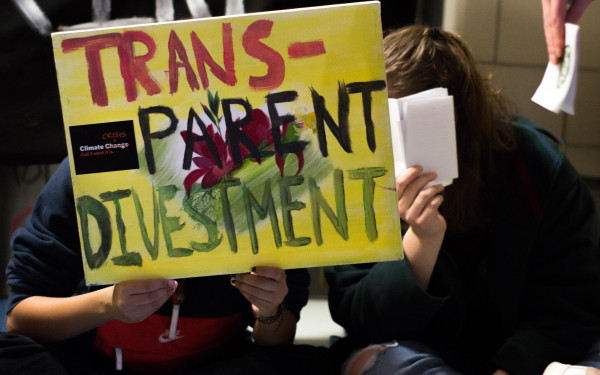Protesters Occupy Montreal Office to Oppose Building of a Cement Factory in Quebec
Caisse de dépôt Targeted for Its Investment in the Gaspésie Project, No Police Present During Demo
Approximately 30 protesters occupied the downtown Montreal office of Quebec’s public pension fund manager on Wednesday morning to oppose the construction of a Gaspésie cement factory, which experts say would be the highest polluting project in province’s history.
The group—operating under the name Regroupement citoyen opposé aux projets industriels insensés payé par le public en Gaspésie—chose to target the Caisse de dépôt et placement du Quebec which had recently become majority shareholders of the project located in a small town called Port-Daniel.
The police were not called, although the building’s security mobilized to the lobby for the approximate two-hour sit-in.
The factory, if completed, will emit between 1.8 and 2.2 million tonnes of Co2 per year, according to Canada’s environmental ministry.
This would increase Quebec’s industrial greenhouse gas emissions by ten per cent. The factory will run on petcoke—a byproduct of Alberta’s Tar Sands.
Demonstrators began occupying the main lobby of the Caisse de dépôt building at around 7:30 a.m. They held banners, chanted slogans, and spoke to passerby about the cement factory.
Protesters took turns shouting facts about the factory, including its environmental impact, the amount of subsidies it has received, juxtaposed with the ongoing cuts to public services by the Couillard administration.
Pascal Bergeron, a spokesperson for Environnement Vert Plus—an environmental organization in Gaspésie—who was present at the occupation, explained that $615 million of public funds has been pumped into the cement factory since its announcement in 2013.
This includes a $250 million loan and a $100 million direct investment by Investissement Quebec, as well as investments totalling $265 million by the Caisse de dépôt.
“This project is going to emit 80 kilograms of lead every year in the atmosphere,” Bergeron says. “That’s going to fall back down on Gaspésie, where I live, where my child lives.”
It’s unclear how the potential factory’s emissions will affect the local environment because no impact studies have been conducted yet, according to Alexandre Brunet, a spokesperson for the Regroupement.
The factory was also never presented before the Bureau d’audience public sur l’environnement, Quebec’s publicly accessible environmental review process. The provincial Liberal government passed a law in 2015 specifically exempting the factory from the process.
Brunet and Bergeron both hope that this action inspires others to join their struggle against the factory.
Bergeron suggested further targeting organizations that provide support to the factory, such as Emploi Competence—a Sherbrooke-based employment agency that sends workers to Port-Daniel to build the factory.
“The people in Gaspésie need to mobilize,” Brunet says. “They need to ask questions to their elected officials, and show their disaccord.”

_1_900_675_90.JPG)
2_900_675_90.JPG)





